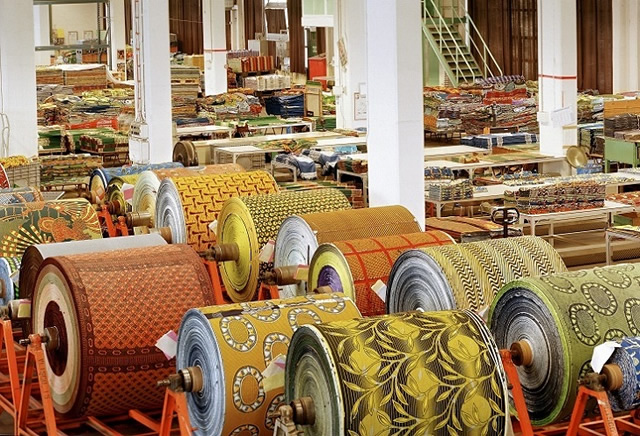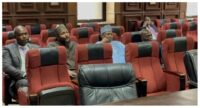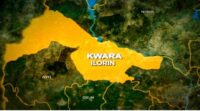•Advocate 30-year revival blueprint
By Merit Ibe
Nigeria’s textile industry, which was once a major job creation hub, has lost its glory and is currently on ventilators.
Stakeholders are perplexed that the sector appears to have defied government’s intermittent interventions and are now calling for a more strategic, long-term revival road map of about 30 years to restore its faded glory.
Listed as major challenges are rampant smuggling of foreign textiles, inadequate power supply, inconsistent government policies, insecurity, forex scarcity, among others.
Analysts have expressed concern that government initiatives aimed at reviving the textile sector through fiscal incentives and monetary interventions have yet to yield the desired impact.
They noted that assurances by the Federal Government of a comprehensive resurgence plan for the cotton, textile, and apparel industry, being developed in collaboration with development partners and the private sector, have not yet translated into visible progress.
The Minister of State for Industry, Trade and Investment, Senator John Enoh, recently reiterated the Federal Government’s commitment to revitalising the textile industry and its value chain, while also pledging stronger efforts to promote Made-in-Nigeria goods.
Also, sometime last year, the federal government noted that about $3.5 billion in investments were secured to rejuvenate the moribund sector. Yet, the sector remains stagnant.
Historically, the textile industry was the largest employer of labour after the public sector, playing a major role in the economy. However, it has ceased to be a significant contributor to foreign exchange earnings and employment in Nigeria due to several challenges.
Industry operators assert that the challenges are multifaceted and call for strong political will, commitment, and sincerity of purpose from the government.
The Manufacturers Association of Nigeria (MAN) has continued to urge the Federal Government to prioritise the protection of local investors and actively take steps to improve the operating environment for manufacturers and other economic operators to thrive.
Segun Ajayi-Kadir, Director General of MAN, lamented the multifaceted challenges faced by the sector, including high electricity costs, high regulatory compliance costs, lack of access to financing, unfavourable foreign exchange rates, and unfair competition from imported and smuggled products.
He viewed that it is imperative for the government to take proactive steps to address these binding constraints to improve the competitiveness of local industries and enhance their contribution to the GDP.
He said: “Importation is presently discouraging local production and putting a strain on foreign reserves as well as weakening the economy.
“Structural constraints should be addressed to reduce cost of local production, which remains significantly high.
“The government could deliberately facilitate backward integration and ensure a friendlier operating environment that will encourage expansion and inflow of fresh investments.
“There is a need to implement the new cluster industrial framework that allows manufacturers to produce efficiently for domestic consumption and export.”
Adenike Ogunhesi, president of the Garment and Accessories Manufacturers Association of Nigeria, underscored the urgent need for a shift in strategy, placing garment manufacturing at the heart of Nigeria’s industrial revival.
Ogunhesi made a passionate case for garments as being capable of generating massive employment, foreign exchange, and global recognition for made-in-Nigeria products.
She emphasised that despite various interventions over the years, Nigeria’s textile industry remains fragmented and underperforming.
“Garments do not just close the loop; they create the loop. Garment manufacturing should be seen not just as the end-product, but as the starting point of a value chain capable of propelling Nigeria’s industrial transformation”, she said.
Welcoming the Nigeria First Policy, the Lagos Chamber of Commerce and Industry said it’s a timely, strategic response.
However, to achieve a meaningful impact with the policy, the government should significantly boost its production capacity, which requires addressing critical factors against productivity, including high energy costs, inadequate energy supply, inefficient transportation and logistics infrastructure, and other infrastructure.
“The federal government should align the policy with the administration’s food security agenda and encourage sub-national governments to replicate similar policies at their levels.
“Also, the government must demonstrate leadership by prioritizing the procurement of locally made goods, including vehicles and refreshments, across all Ministries, Departments, and Agencies (MDAs).”
The Chamber urged the National Orientation Agency (NOA) to develop and execute a robust public awareness campaign to communicate the goals and benefits of the Nigeria First Policy to all Nigerians.
For Dr Nathan Owhor, a Development Expert the textile sector has suffered several years of neglect and this has led to the collapse of textile manufacturing in the domestic economy.
“The warehouses and industrial complexes are gone. The manufacturing equipment and machines are no longer what they used to be. The infrastructure in the industrial areas have collapsed. The raw materials like cotton and other input materials will take years to produce.
Questioning the purpose for the $3.5 billion in investments secured to rejuvenate the moribund sector, he said; What ills in the sector will the intervention address?
“It is not enough to seek investable funds in the sector. The sector in 2007 received about N70 billion through the Bank of Industry. The decay in the sector still persists.
The textile industry is a major employer of labour. The value chain is huge.”
He emphasised that the government must be deliberate at ensuring the sector is revamped.
Advising that the first step is to produce a 30 year road map for the sector, he said:
“In the first phase of the plan, few industries in the sector should be identified without political consideration. The industries so identified should be in clusters.
“The clusters will have dedicated power supply at discounted rates. Finally, the identified textile industries should enjoy import waivers and have access to forex at official rates.
All of these will be the cornerstone for textile rebirth in Nigeria.”
Daniel Dickson-Okezie, SMEs expert and member of the LCCI lamented that the Nigerian textile industry is not experiencing the desired growth for various reasons like high production costs, smuggling of cheaper foreign textiles, inadequate infrastructure, and the government’s inconsistent policies.
“These and some other factors have hindered the ability of the textile industry to grow.”
Reeling out some of the factors that have deterred the growth of the sector, he said high level smuggling and importation of textiles materials are part of the problems facing the Nigerian textile sector.
“Today, over 90 per cent of textile products in Nigerian markets are either smuggled or imported into the country.
In the area of infrastructure, the power sector is still producing below expectations.
“The road network is still bad. Businesses have challenges moving their goods, including raw materials and finished products. This has led to high costs in the supply chain.
“Another problem is the issue of finance. The cost of finance in Nigeria
happens to be the worst we have in any part of the world.
And so cost of funds is a major determinant of the growth of the real sector.
And of course, including the textile industry.”
He insisted that conscious effort must be made to curb smuggling and importation of textile products as importation is presently discouraging local production and putting and straining foreign reserves as well as weakening the economy.
Dickson-Okezie said government patronage is a critical success factor for industrial growth and development.
“The current administration must ensure enforcement of Executive Order 003 and the Nigerian First Policy.
“It is vital for the government to encourage domestic production and industrialization through its procurement policies.
“Implementation of stricter border controls and enhancing enforcement of anti-smuggling laws are also critical to protect local industries from unfair competition.
“The Nigeria Customs Service must be on duty to effectively combat smuggling and dumping of sub-standard goods into Nigeria which has crippled local industries.”
To him, the impact of the $3.5 million has not been seen.
“As a matter of fact, securing investment is an ambiguous language which may be said for political reasons.
“Who are the investors? What is the timeline for the investments to take off?
As a matter of fact Nigerians have not experienced any such investment or any growth in the textile industry.
“Most of the textiles they bring in from China are cheaper.
There is deficient enforcement of laws at the borders particularly in the area of smuggling goods.
So the problem persists.
“Another point is the issue of inconsistency in governments policies which are not predictable.
And when the government policies are unpredictable,
it becomes difficult for investors to invest in any sector at all,
not only in the textile industry.
Some of the textile companies that closed down and left Nigeria did so because of low patronage.
And that low patronage, of course, is also as a result of the competition they face due to smuggling textile materials into the country,
high cost of production and all that.”
Moving forward he advised the government to take bold steps.
“The government has to be serious about developing the textile industry.
We have large cotton farms in the North that are thriving, we need to resuscitate them.
We have to get back and develop the cotton industry
and make sure the cotton farms are in place. The government needs to look at this problem of high cost of funds. The government can assist people in this industry by making use of government agencies,
financial institutions, such as SMEDAN to ensure that funds are available for the sector
They can also Introduce other interventions using the private sector to get the industry back on track.
They can also show commitment in developing infrastructure.
“The political will of the government is required to help the sector. We need to develop textile hubs, to make it easier to source raw materials and cut down on the cost of production.”

















Leave a comment